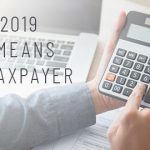How the Autumn 2018 Budget Effects Self-Employed Businesses
Chancellor Philip Hammond has just revealed the Autumn 2018 Budget and as I’m fully aware, many of you are busy people and don’t have time to read all the ins-and-outs of what has changed. So in this blog I’m just rounding up the key aspects of the Autumn 2018 budget which will have a direct impact on self-employed business owners.
Self-Employed Changes
So before we move onto the more specific business-related areas I thought it would be worth quickly noting the more ‘personal’ changes being made which will impact the self-employed.
The personal allowance threshold has been raised from £11,850 to £12,500 which will be effective as of April 2019. This is the rate at which we all have to start paying 20% tax on any income above this amount, so in essence we can all now earn £12,500 without paying any tax – happy days! This is something which was due to rise anyway, it’s just happened earlier than expected.
In relation to allowance thresholds – the ‘higher rate’ income tax threshold has also been raised from £46,350 to £50,000 – again effective as of April 2019. So this is the rate at which people who earn over this amount have to start to paying tax at 40%. So you now can earn up to £50,000 before paying tax at 40%.
Also just in-case there are any first-time self-employed buyers out there, it’s also worth noting that stamp duty has now been abolished on all properties up to the value of £500,000 (if you’re a first-time buyer). This previously only applied on houses up to the value of £300,000.
Business-Specific Changes
The big change in this year’s budget is that ‘business rates’ will be cut by a third for shops, pubs, restaurants and cafes in England. The only stipulations are that this cut is only for two years (this is because in 2 years ‘business rates’ themselves are up for renewal discussions) and it only applies to properties who’s rateable value are £51,000 and under. This is all in an effort to help save Britain’s high street retailers.
Also linking on from this – there will no longer be business rates applied to public toilets, whether publicly or privately owned…Just in case this does in-fact apply to your business.
Relating to high-street retailers, a new tax is now going to be added on plastic packaging that contains less than 30% recyclable material. So just be aware that if you are currently buying/using packaging which is made of less than 30% recyclable materials, then the cost at which you have to buy these in will increase. So best ‘go green’ and source a cheaper, greener packaging option!
If you are a business that employs staff then please be aware that the National Living Wage will increase from £7.83 to £8.21 an hour (increase of 4.9%,) as of April 2019. So if you are paying minimum wage then be sure you are ready to up anyone’s hourly rate or equivalent salary appropriately.
A confusing 2% tax is due to be added to ‘big technology companies’ from April 2020. The reason I say ‘confusing’ is because…how do you define a ‘big technology company’ and I know many people out there (including myself as the owner of a software company!) became very concerned when they heard this. However it turns out this tax will only be applied to digital companies (social media, software companies etc) that generate a revenue in excess of £500 million per annum…which I’m guessing doesn’t apply to the majority of my readers – but you never know!
And finally, if you run a smaller business which recruits apprentices and pay toward the cost of their apprenticeship training then the amount you personally have to contribute will be halved! So currently you have to pay 10% of their training costs, however this will be reduced and you now only have to contribute 5% towards their fees.
There are of course an endless list of changes which have come from the Autumn 2018 Budget however these are the key areas I consider the most important for self-employed business owners in the UK.














Share On